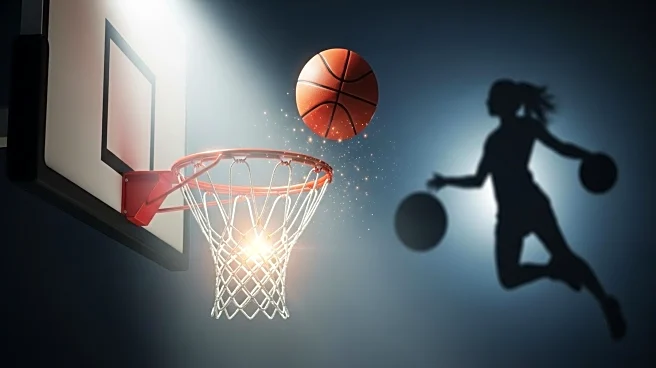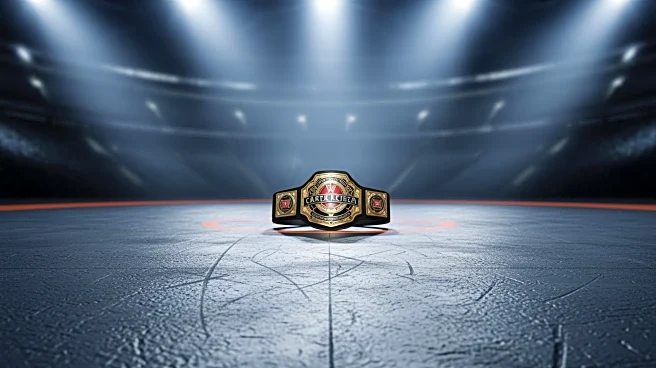What's Happening?
WNBA Commissioner Cathy Engelbert has refuted claims that she made dismissive comments about Indiana Fever star Caitlin Clark. Engelbert emphasized Clark's transformative role in the league, highlighting her ability to attract millions of new fans. The controversy arose when Minnesota Lynx forward Napheesa Collier alleged that Engelbert made remarks suggesting Clark should be grateful for her earnings, which are significantly boosted by the WNBA's platform. Collier's comments were made during her exit interview, where she also questioned the league's compensation structure for players like Clark, Angel Reese, and Paige Bueckers. Fever guard Sophie Cunningham supported Collier's stance, criticizing Engelbert's purported remarks. Clark, who has gained substantial popularity since joining the Fever, was a standout player at Iowa, leading her team to two national championship games and achieving a significant NIL valuation.
Why It's Important?
The situation underscores ongoing tensions in the WNBA regarding player compensation and recognition. Caitlin Clark's influence in the league is undeniable, as she continues to draw significant attention and revenue. The dispute highlights broader issues within professional women's sports, where athletes often face disparities in pay and media coverage compared to their male counterparts. The collective bargaining agreement negotiations with the WNBPA are crucial, as they could address these disparities and potentially reshape the league's financial landscape. Players like Clark, who have substantial off-court earnings, are pivotal in driving the league's growth, making their treatment and compensation critical issues for the WNBA's future.
What's Next?
The WNBA is currently engaged in collective bargaining agreement negotiations with the WNBPA, which could lead to changes in player compensation and benefits. The league's leadership, including Engelbert, may need to address player concerns more directly to ensure continued growth and satisfaction among its athletes. As the negotiations progress, stakeholders will be watching closely to see if the league can balance its financial interests with the needs of its players. The outcome of these discussions could have lasting implications for the WNBA's reputation and its ability to attract and retain top talent.
Beyond the Headlines
The controversy surrounding Engelbert's comments and Clark's role in the league highlights the cultural and ethical dimensions of professional sports. It raises questions about how female athletes are valued and the importance of equitable treatment in sports organizations. The situation also reflects broader societal issues regarding gender equality and the recognition of women's contributions in traditionally male-dominated fields. As the WNBA navigates these challenges, it has the opportunity to set a precedent for other sports leagues in terms of player advocacy and fair compensation.










